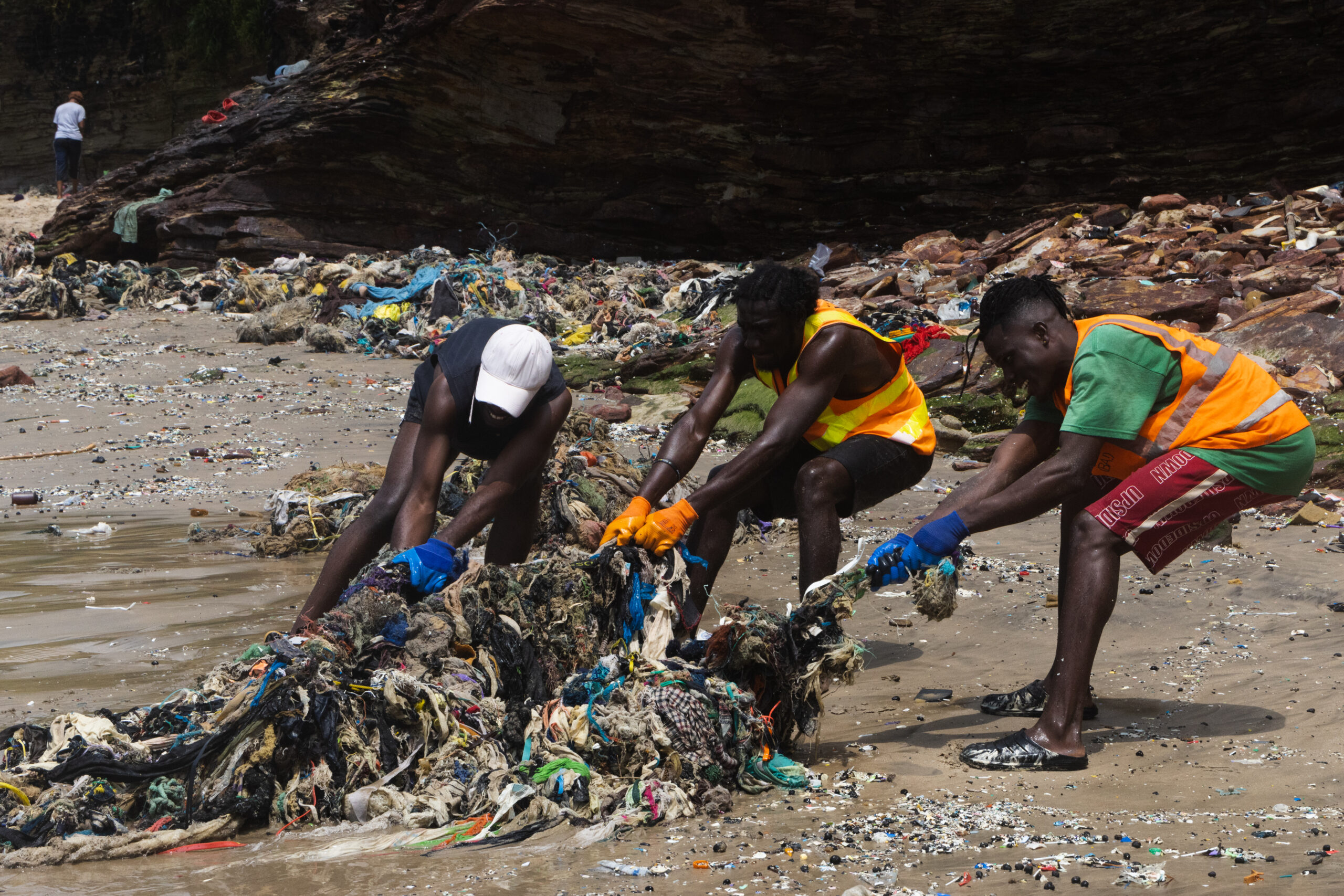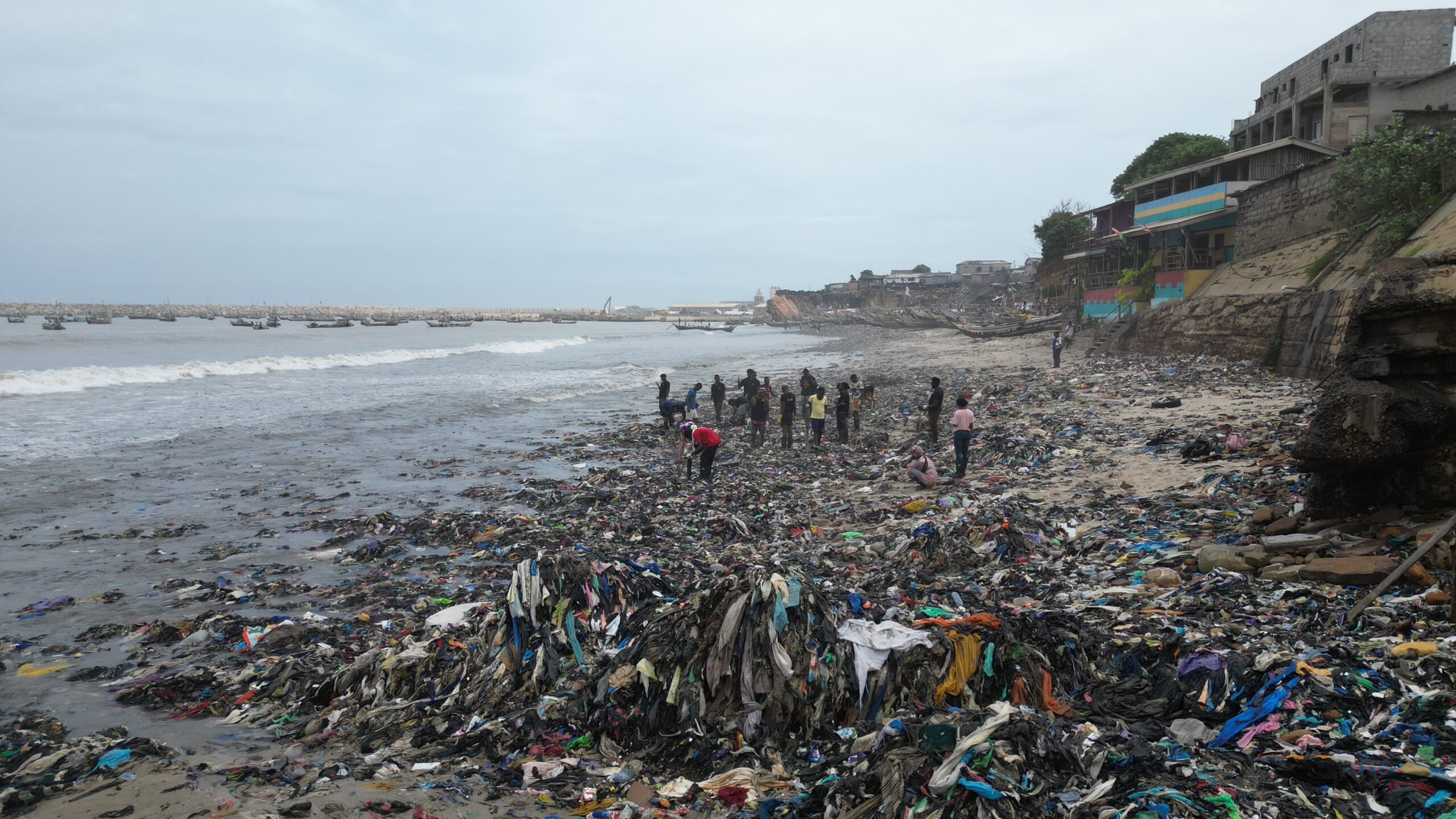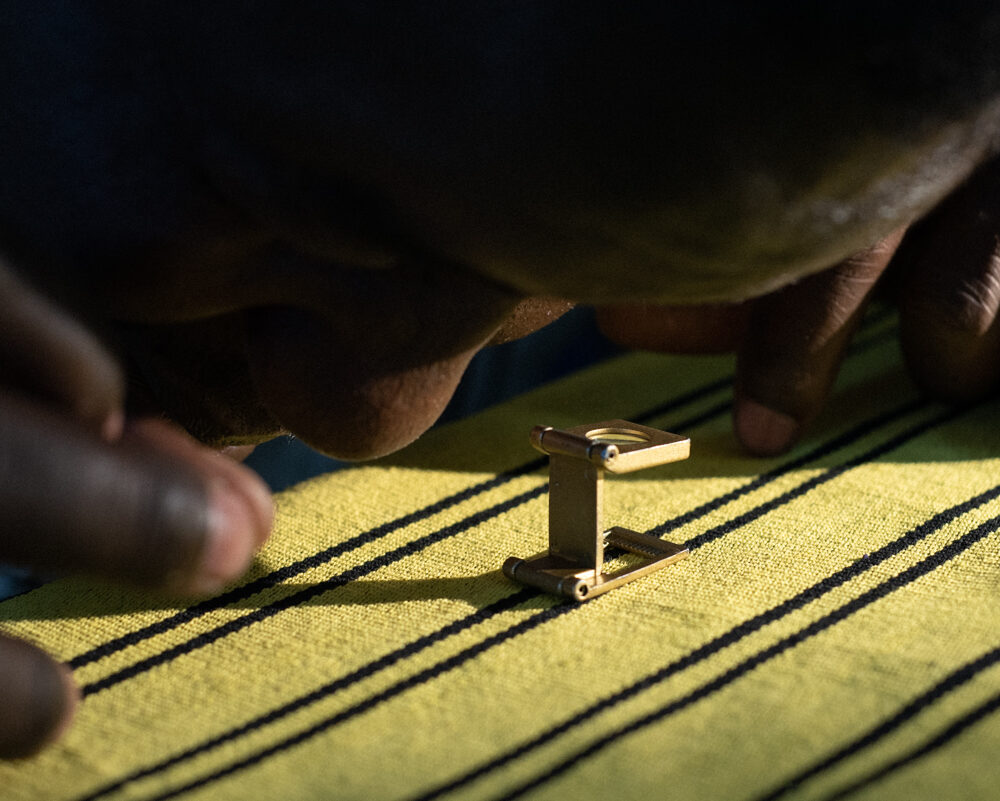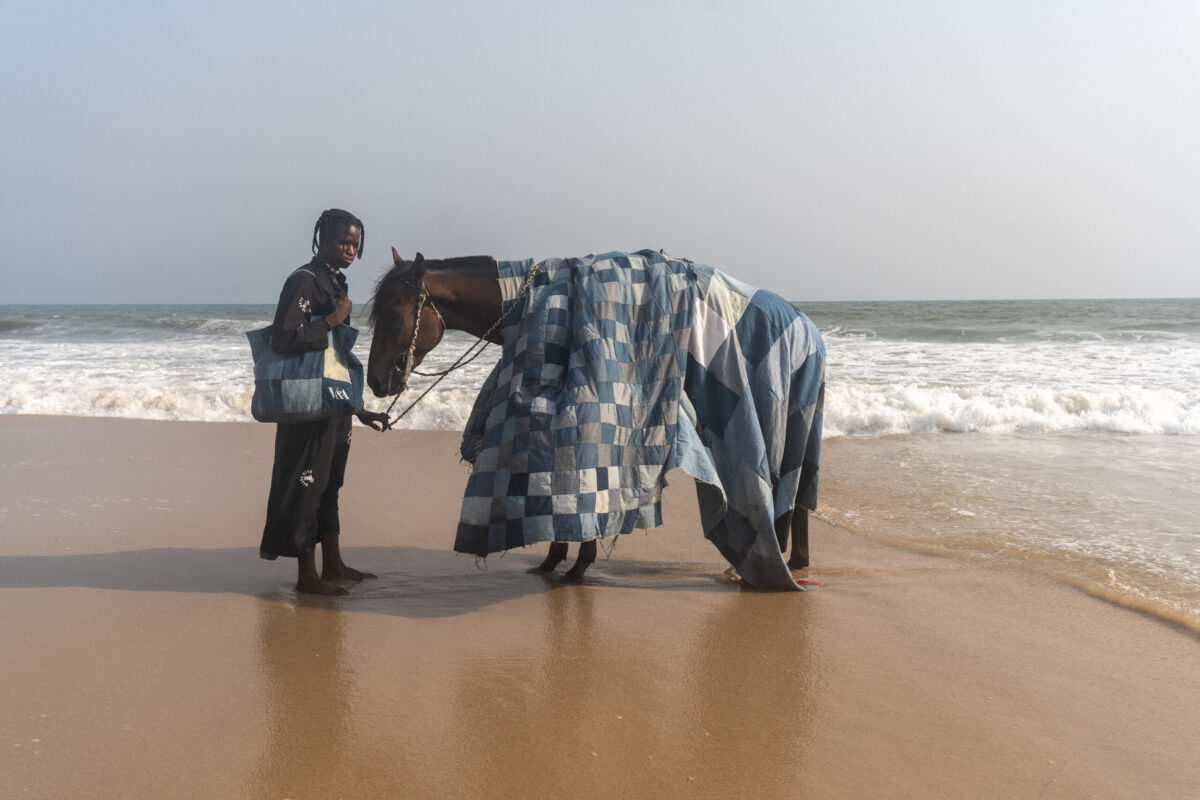Chloe Assam from The Or Foundation discusses the Stop Waste Colonialism campaign
The Or Foundation is at the forefront of pushing for a justice-led circular economy in the fashion industry. One that breaks the corporate and governmental systems that encourage over consumption in the Global North, leading to environmental and social catastrophe in the Global South. The NGO was co-founded in 2011 by Liz Rickets and Branson Skinner and now centres its efforts on Accra’s Kantamanto Market, one of the largest second-hand clothing markets in the world. From on-ground relief and recovery efforts to education, research and advocacy, its activism is far-reaching and fearless.
Its latest campaign, Stop Waste Colonialism, calls for globally accountable Extended Producer Responsibility (EPR) policies for textiles. Its 2023 position paper proposes introducing a fee per garment produced to fund waste management systems, the fair distribution of funds to effected countries to repair damage and build infrastructures, and for companies to publicly disclose production volumes while setting targets to reduce production by at least 40% over five years. Here, The Or Foundation’s senior programmes manager Chloe Assam talks us through this powerful initiative.




